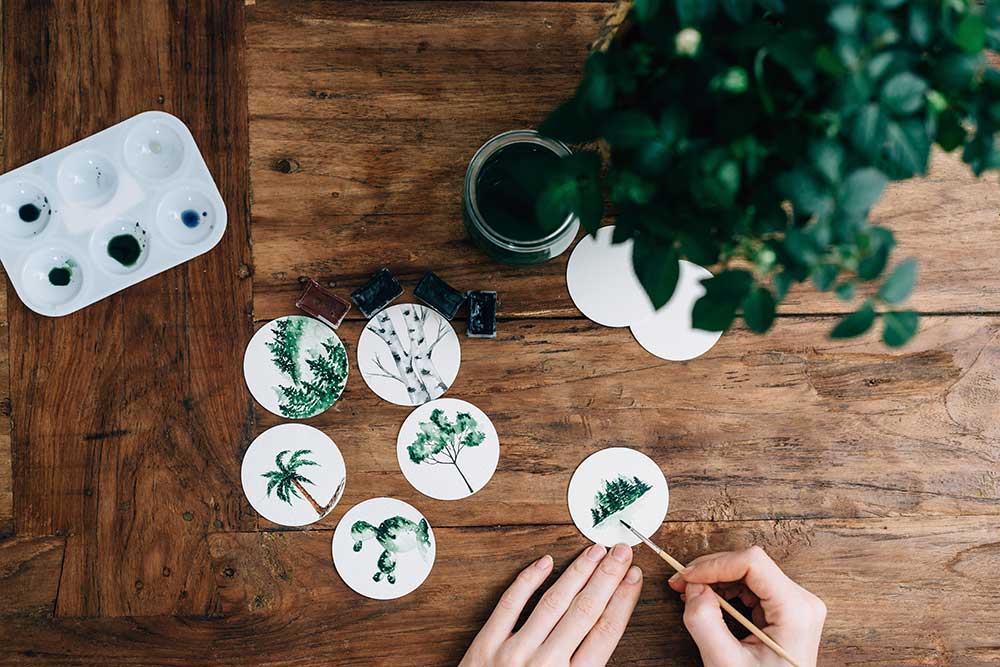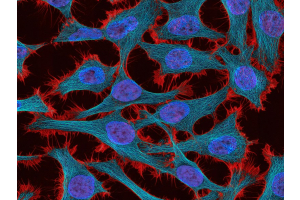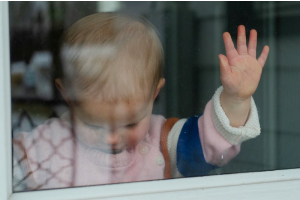Dealing with a Diagnosis
Last updated: 19 October 2018
You can legally access new medicines, even if they are not approved in your country.
Learn more »Online counsellor Nicole Hind shares how to help our brains and bodies deal with a diagnosis

You’ve just received a shocking diagnosis. You’re reeling and you aren’t sure what to do or how to take it in, let alone respond to the news. Suddenly you’re being asked to take in enormous amounts of information and make life-changing decisions. It’s expected, of course, that you will have to follow treatment plans and you know you should get on board right away, but you just can’t. You’re struggling and unable to climb out of the hole and it’s just getting deeper.
It turns out that trauma diagnosis could very well be affecting a large number of people, and it’s having an impact not only on our emotional well being but on our entire wellness and treatment plans. This study found that patients are far more likely to follow their doctor's treatment plan when they feel like he/she has really listened to them with empathy and respect. And it seems this can be addressed right from the beginning if we all better understand the impacts of diagnosis.
What is trauma (or Post Traumatic Stress Disorder- PTSD)?
Little is mentioned in the study of medicine about ‘diagnosis trauma or ‘medical trauma’, however it can be understood as trauma a person may experience at the diagnosis of a serious illness, and/or the ongoing impact of dealing with a diagnosis.
The DSM V defines trauma as ‘a direct personal experience of an event that involves actual or threatened death or serious injury, with the response involving fear, helplessness, or horror’ (p. 463). Dr Judith Herman, an expert in trauma, would describe it, simply, as ‘a normal response to abnormal circumstances’. However it doesn’t ‘feel’ very normal.
Trauma is a bit like a short-circuiting of the way the mind usually sends messages around the brain. When we can’t totally make sense of something – typically when we are in danger and we have no control over the situation – the brain goes into hyper drive trying to ‘protect’ us, sending adrenalin and cortisol (and additionally for women oxytocin) flying around our bodies to get us to react, to get out of the crisis, to reject what is happening.
Of course it is not possible to get out of a diagnosis situation.
What happens in the brain when trauma occurs?
The amygdala (the reptile brain where our instinct reactions live and our stress responses come from) basically shuts off from our pre-frontal cortex (where our thinking and logic live: where the ways we make sense of the world are created over our lifetime as we form memories). If we can’t fix the situation or come to some sort of resolution around it, then we can be propelled into the reactive danger zone constantly. This can have pretty major impacts the entire functioning of your brain.
What does it feel like?
You might experience some kind of trauma when you first hear a diagnosis. What it looks like can be numbness or emptiness, an inability to take in information, to think clearly or make decisions, an overwhelming sense of fear or even terror, a strong desire to run away, to argue, a strong sense of being out of control, or somewhat weirdly to touch someone. Or you can suddenly be accompanied by a number of seemingly unrelated physical symptoms: heat in the face, excess energy, tingling fingers or scalp, deep sick feeling in the stomach, tightness across the chest, inner churnings.
Another presentation of trauma is that once you stop ‘the doing’ – once everything practical is taken care of – a whole bunch of the above symptoms can suddenly hit you. This can happen months or even years later. The ongoing trauma of dealing with a diagnosis of a life-threatening condition, or a later impact from the initial shock to the system of the news can have a profound impact on your physical wellbeing as well as your emotional and mental state.
In fact, prolonged exposure to trauma (referred to as C-PTSD, the C standing for Complex) can present in severe physical presentations: gut problems, heart conditions, back issues, headaches etc. It can also affect your ability to relate to other people, and influence your behaviour in ways you might not prefer.

Grief and Loss: what happens when you toss that in?
Grief and loss reactions are not just reserved for when a person dies. When we experience a loss of any kind – including a loss of a vision of the future – it can knock us for six. Basically our brains like our bodies to be safe and secure. When it becomes apparent that we cannot necessarily control that, a whole bunch of funny stuff can happen. Insomnia moves in and interrupts your previously restful nights sleep. Nightmares ruin your dreams.
I myself had a series of intense ‘flashes’ of people I loved dying in horrible ways when I was going through a loss some time ago. Experiences like this can be seemingly unrelated to your diagnosis, but it’s important not to underestimate the power of our minds when it comes to, in all it’s peculiar ways, protecting us and figuring things out.
It’s confusing and troubling and painful.
The last thing you need.
The first (or more accurately, second) thing that a medical practitioner should be looking for. I don’t think it takes too much to be human with each other, no matter what our profession. Grief and loss reactions are not just reserved for when a person dies. When we experience a loss of any kind – including a loss of a vision of the future – it can knock us for six.
Just understanding diagnosis trauma might help doctors provide more effective and supportive treatment, and patients to be slightly less terrified when dealing with a diagnosis.
What can I do about Medical Trauma?
If you think you or your loved ones may be experiencing some kind of trauma or are struggling to deal with a diagnosis, here are some ways to think and talk about what is happening:
- Cross-examine the diagnosis
It may seem obvious, but allow yourself to spend some time reflecting on the meaning of your experience. If there is a sense of loss, what does this loss speak to about what is important in your life? Is there a way to hold onto what is important even under the strain of illness? When the intensity of The Diagnosis is present, what does it have you doing (or not doing)? Are you ok or not ok with that? Does anything become more available to you when The Diagnosis is shrunk a little in your mind?
- Love yourself through another’s eyes
When you genuinely look at yourself through a specific loved ones’ eyes what do you see? Remind yourself of who you are and what you mean to the people in your life. How are you going to hold onto your identity (and ask others to help you do that) in times of great pressure when it seems little is available?
- Take a position- stand up for something- rather than ‘fighting’ it
We often expect people to ‘fight’ illness. In fact, we demand it. We say they ‘need to stay strong’ and describe it as ‘losing the fight’ when someone is dying, or if someone chooses to stop treatment we might say they’ve ‘given up hope’. But what does ‘standing up for Hope’ look like? Does it have to look the same for everybody? Is it possible to find other things to stand up for, ways of being that don’t involve fighting metaphors: can you see yourself as ‘standing up for love’ or ‘taking a position against an inhuman culture’? Can you make peace with a diagnosis without ‘giving up’ on yourself? If so, what does that look like?
- Spend some time with Yourself
We can find ways to honour the parts of ourselves and others that are not specific to illness or diagnosis: Asking ‘Who Am I’ as a person, as someone who is part of a bigger picture, who contributes in any way that you can to this society and your people. Maintaining and actually growing your sense of identity via what is meaningful to you can help bring together what becomes fragmented by trauma.
Can you make peace with a diagnosis without ‘giving up’ on yourself? If so, what does that look like?
- Be there for your loved one with a diagnosis. Just Be.
If you are supporting someone who has received a diagnosis, don’t launch into advice on how to feel better. Instead, offer your acceptance of what they are feeling. Acknowledgment. Support. It can be hard to sit with someone else’s pain and just let it be, but there is little more powerfully human than simply being with one another.
Are there practical things I can do to reduce the impacts of trauma?
By feeling more in control of your body, safer and more connected there is a lot of research to show that there is a positive, physical impact on the brain. In particular if you can calm anxiety you create the conditions that allow neural passages to open up, send messages, and possibly even regrow.
Recently I saw Dr Gregory Willis of The Bronowski Institute speak. He is an expert in Parkinson’s disease. With over 20 years of medical and scientific research and literally thousands of patients he is showing that if you treat the depression and anxiety that comes along with the brain changes + diagnosis trauma of Parkinson’s then you reduce the need for high levels of medication (research not embraced by many pharmaceutical companies). What THAT means is a longer and more fulfilling life with Parkinson’s and less chance of overdose. He supports the use of light retina treatment and anxiety-reducing practices alongside medication in treatment. Those anxiety-reducing practices are things like:
- Mindfulness techniques
Mindfulness can assist to put you ‘in the moment’ and not trailing off on thought processes that are not serving you. You can practice with a professional or via a podcast or alongside a video on YouTube.
- Deep breathing
Many of my own clients find controlled techniques such as 4262 breathing help them sleep. Bear in mind the out breath is the calming one, so it’s breathe in for 4, hold for 2, out for 6, hold for 2, repeat (adjust slightly to your own breathing rhythms, just making sure the out breath is longer).
- Specialised yoga classes for addressing trauma
There are also yoga classes for people who have illnesses and the teacher can adjust practice in accordance with your needs. Additionally it can be a safe space to connect with others who understand your story.
Because guess what? You are allowed to be: Furious. Confused. Terrified. Sorrowful. Or even Numb.

- Soothe your emotions creatively
As a matter of priority, make time for any kind of activity you find soothing, such as journaling, art, making wooden furniture, cycling…or embrace the opposite of soothing by using the activity to express your emotions. Because guess what? You are allowed to be: Furious. Confused. Terrified. Sorrowful. Or even Numb. We have this tendency to be frightened of strong emotions. We shut them down: in each other, our children and ourselves. But it’s not healthy. If you’re not a talker, or you don’t buy into all this sharing nonsense, then finding some way to express yourself is vital for your health. When you pay attention to your body, when to soothe and when to express becomes much more clear.
Feeling that they had to be ‘strong’ in only one way (e.g.: silence by not ‘burdening others’) is actually one of the biggest regrets most people I work with share, at some time of their lives.
- Talk about it, share it, reflect on what it means
On a similar note, finding ways to express your emotions, finding someone who can listen to them, handle them, places to yell and scream and cry can be very important for healing trauma and also for a strong brain. If this frightens you, it might help to ask yourself: Why do I feel so strongly about this diagnosis? What has been taken away from me, and why do I hold it so dearly? What am I standing up for when I let my emotions be, as they are, without attacking anyone or myself for feeling this way?
- It’s OK to be vulnerable
Lastly, when it comes to diagnosis, or anything in life, it’s ok to be vulnerable and ask for help. Feeling that they had to be ‘strong’ in only one way (e.g.: silence by not ‘burdening others’) is actually one of the biggest regrets most people I work with share, at some time of their lives. We all struggle to get more of what we need from others, so practicing at it, even though it doesn’t feel natural, is an art. You’ll often be surprised about how much more you get from folks when you bravely share your own vulnerability.
Dr Judith Herman herself says that trauma recovery can only take place within the context of relationship. If we don’t see ourselves or each other as worthy of having a say in relationships: with friends, family and our doctor who is making life-changing decisions for us, then we will, as a society confronting life threatening diagnoses every day, continue to struggle with this vital understanding of the relationship between the body, the mind and ultimately our own wellness. Dealing with a diagnosis can be traumatic, but it doesn’t have to be.
Nicole Hind is an Australian Online Counsellor who fiercely believes that we all have stories that deserve to be wrenched out of the shadows, increase a sense of hope, of self-worth, and provide clarity on how to approach challenges for the rest of our lives. You can get in touch with her or read more of her blogs at www.unveiledstories.com.






